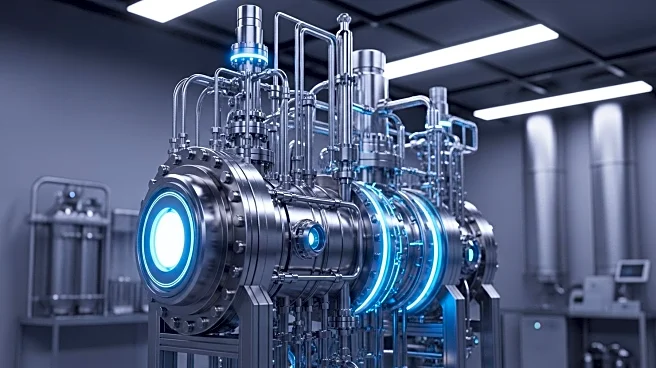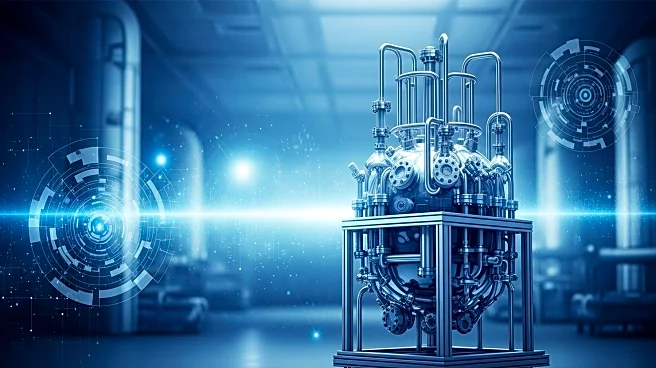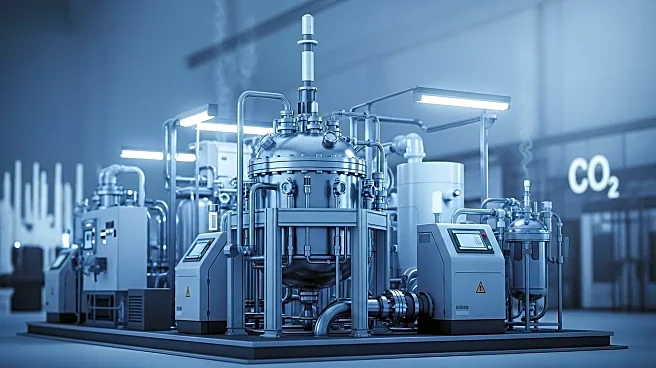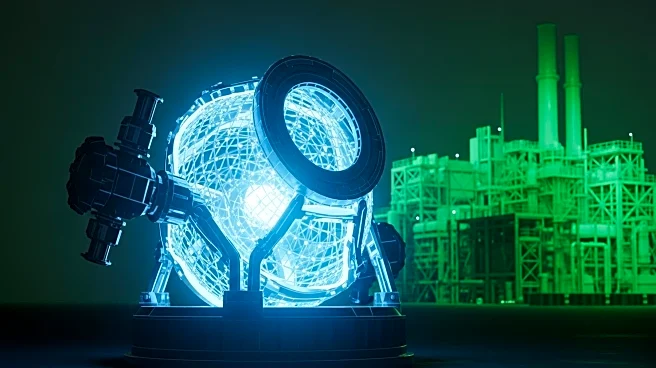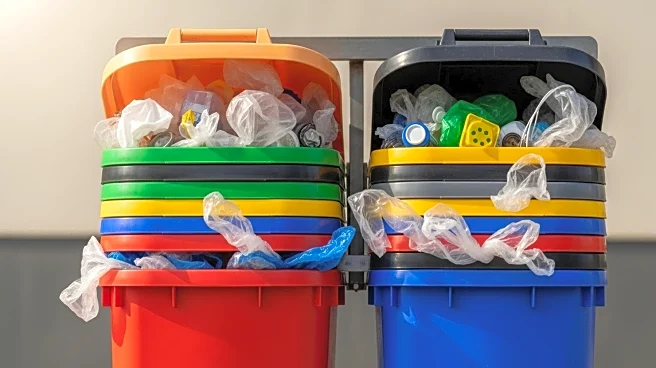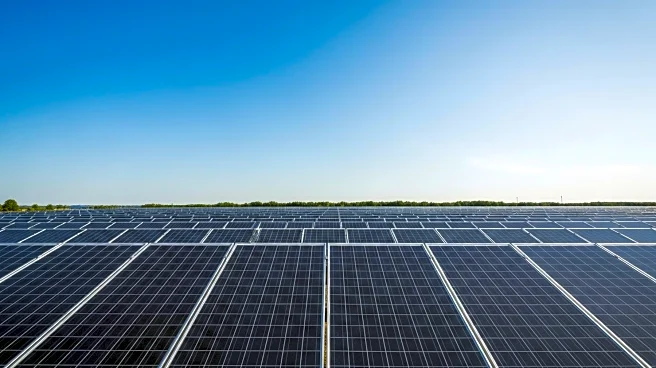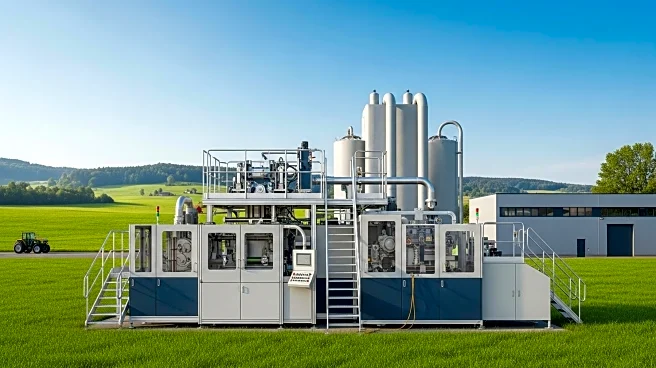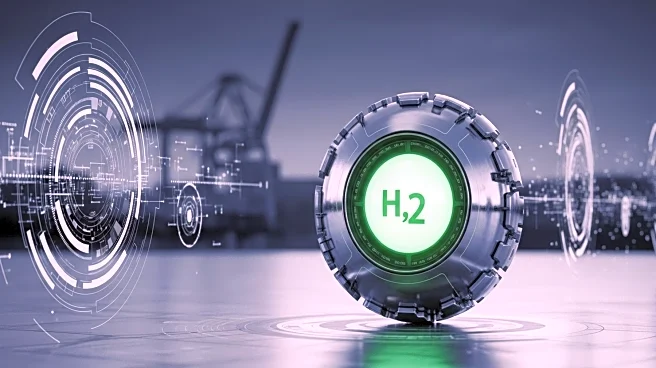What's Happening?
The ConsenCUS project, a collaboration of 19 industrial and academic partners, has been working since 2021 to develop innovations in carbon capture, utilization, and storage (CCUS) technologies. The project aims to make CCUS compatible with a net-zero emissions world by using electricity for capture and conversion processes, which is easier to decarbonize than traditional heat-powered solutions. The project has demonstrated the technical feasibility of its solutions through a three-stage pilot campaign, showing potential economic, environmental, and societal impacts if implemented at full scale. The technology uses a potassium hydroxide solution to absorb CO2 from factory exhaust fumes, with a regeneration module that lowers pH to release CO2 and recycle the solvent. The captured CO2 is then converted into potassium formate, a biodegradable product with a billion-dollar market potential.
Why It's Important?
The advancements in CCUS technology by the ConsenCUS project are significant for achieving net-zero industrial emissions, a critical goal in combating climate change. By demonstrating a less energy-intensive process for CO2 capture and conversion, the project offers a sustainable alternative to conventional methods. This innovation could lead to reduced greenhouse gas emissions from industrial sources, contributing to global climate targets. The project's focus on using renewable electricity further enhances its environmental benefits, potentially reducing the carbon footprint of industrial operations. The successful implementation of these technologies could also stimulate economic growth in the market for biodegradable products like potassium formate, offering new opportunities for industries and investors.
What's Next?
As the ConsenCUS project concludes in 2025, the consortium is advocating for accelerated development and deployment of CCUS technologies. Recommendations for the EU's industrial carbon management policy include supporting both next-generation and mature technologies, fostering 'learning-by-doing' in research frameworks, and mitigating high energy costs while maintaining climate ambitions. The project emphasizes the importance of community engagement and transparent communication to ensure public acceptance of CCUS technologies. Scaling up the electrochemical CO2 capture and utilization technology to full commercial scale will require collaboration with local communities and governments to optimize logistics and integration into the energy system.
Beyond the Headlines
The ConsenCUS project highlights the need for comprehensive community engagement in deploying CCUS technologies. Local acceptance is influenced by environmental concerns, such as water consumption, which can affect perceptions of CO2 mitigation projects. The project's findings suggest that transparent communication and enabling community participation are crucial for overcoming challenges like engagement fatigue and unequal partnerships. Additionally, the project's life cycle analysis demonstrates the environmental and economic benefits of its solutions, emphasizing the importance of considering the carbon footprint and electricity costs in planning for a net-zero future.
